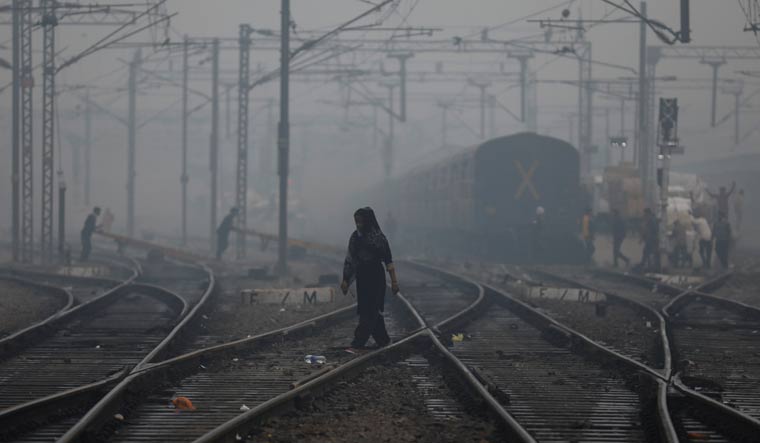US space agency NASA’s satellite sensors reported that pollution levels in northern India plummeted to a 20-year-low thanks to the lockdown imposed to slow down the spread of the coronavirus. “We knew we would see changes in atmospheric composition in many places during the lockdown,” said Pawan Gupta, a Universities Space Research Association scientist at NASA's Marshall Space Flight Centre, was quoted as saying by ANI. “But I have never seen aerosol values so low in the Indo-Gangetic plains at this time of year,” he added.
As per reports, the average particle matter (PM 2.5) in the air in North India had decreased by 22 per cent. The data showed how aerosol optical depth in 2020 compared to the average for 2016-2019. The measure of how light is absorbed or reflected by airborne particles is aerosol optical depth.
If aerosols are concentrated near the surface, an optical depth of 1 or above indicates very hazy conditions. Scientists were not able to gauge the actual change in aerosol levels during the first few days of lockdown, as, according to Gupta, the change was a combined result of lockdown and rain. He further said that he was very impressed by how the aerosol levels did not return to usual levels after the rainfall.
As per a New York Times report on Wednesday, residents of Jalandhar woke up to a spectacular view of the Himalayas, which are more than 160 km away. Bengaluru, too, saw air pollution reduced by 38 per cent.
"This a model scientific experiment," Robert Levy, program leader for NASA's MODIS (Moderate Resolution Imaging Spectroradiometer), said about the lockdown and its effects on pollution.
"We have a unique opportunity to learn how the atmosphere reacts to sharp and sudden reductions in emissions from certain sectors. This can help us separate how natural and human sources of aerosols affect the atmosphere," Levy added.


